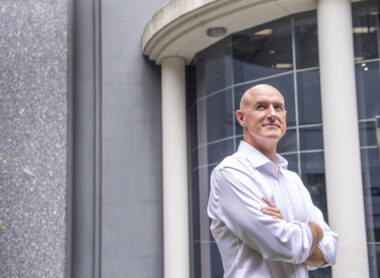Monash University researchers have found that manufacturing businesses who adopt circular economy (CE) strategies and practices can reduce manufacturing waste by 65 per cent.
Australia’s manufacturing sector contributes significantly to waste generation, producing nearly 13 million tonnes of waste nationwide.
In Victoria, the industry is responsible for 39 per cent of the state’s total waste. In particular, the manufacturing sector generates an average of 4,350 kilograms of waste per full-time-equivalent (FTE) employee annually, resulting in almost 500,000 tonnes of waste per year in the southeast Melbourne region alone.
To tackle this issue, Victoria's manufacturing industry has been working with Monash Business School’s Department of Management to develop strategies to enhance resource efficiency, minimise waste, and mitigate the negative effects of production and consumption by adopting CE principles and practices.
As part of a three-year project, a team of researchers, led by Primary Chief Investigator Professor Amrik Sohal from the Department of Management, worked with Victorian manufacturers in plastics, textiles, general engineering and food, as well as industry associations and local government representatives, to raise awareness, build capability and support their transition to a CE.
The researchers interviewed 25 leading CE businesses to learn more about the most successful practices. They then developed workshops and seminars for the manufacturing industry.
A post-workshop survey revealed participant attitudes and behaviours shifted significantly once they learned about the economic and cost-saving benefits of CE practices.
Jardan, an Australian family-owned high-end furniture business, was one of the 25 Victorian organisations interviewed for the study. The furniture retailer told researchers they reduced their manufacturing waste by 65 per cent by adopting CE strategies.
The business strives to make products sustainable throughout the entire lifecycle.
It has adopted numerous circular economy practices including sourcing over 75 per cent of their materials from Australian suppliers, designing products for longevity and reducing their energy consumption by 17 per cent.
Professor Sohal said examples such as Jardan showed what could be achieved when CE practices were championed.
“CE focuses on optimising resource utilisation, grounded in the belief that the economic system already possesses sufficient resources,” he said.
“By enhancing resource efficiency, the goal is to decouple the economic system from resource extraction and waste generation, while extending the lifespan of resources to their maximum potential.”
Based on the experiences of the leading businesses involved in the study, researchers suggest the following strategies can help manufacturers adopt CE practices:
- Build circularity into the design of the product, including using alternative/recycled materials
- Take a ‘systems’ approach and build circularity into the whole supply chain
- Ensure the financial viability of the business model
- Be transparent and genuine in what you do in the CE space
- Help people understand the value of what they are contributing to
- Create networks of like-minded communities by collaborating with others and sharing best-practice knowledge.
- ENDS -
MEDIA SPOKESPERSON
Professor Amrik Sohal, Department of Management, Monash Business School, Monash University, Australia
RESEARCHERS
Professor Amrik Sohal, Department of Management, Monash University, Australia
Dr Alka Nand, Department of Management, Monash University, Australia
Professor Daniel Prajogo, Department of Management, Monash University, Australia
Dr Ananya Bhattacharya, Department of Management, Monash University, Australia
Associate Professor Glen Croy, Director of Engagement in the Department of Management, Monash University, Australia
MEDIA ENQUIRIES
Helena Powell
Media Communications Officer, Monash University
M: +61 474 444 171



